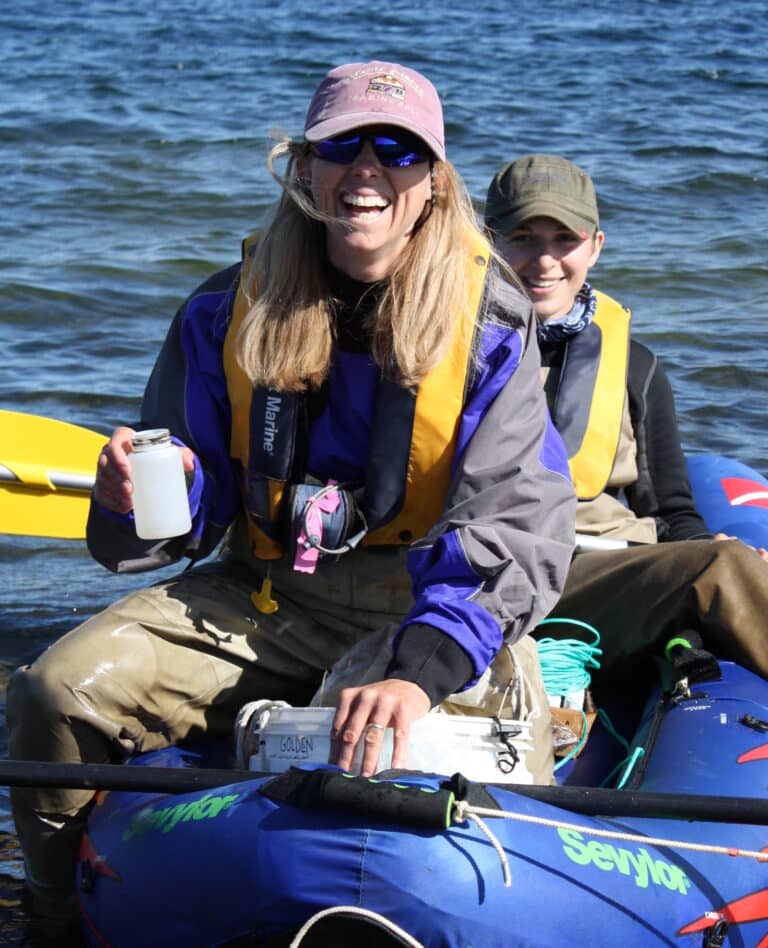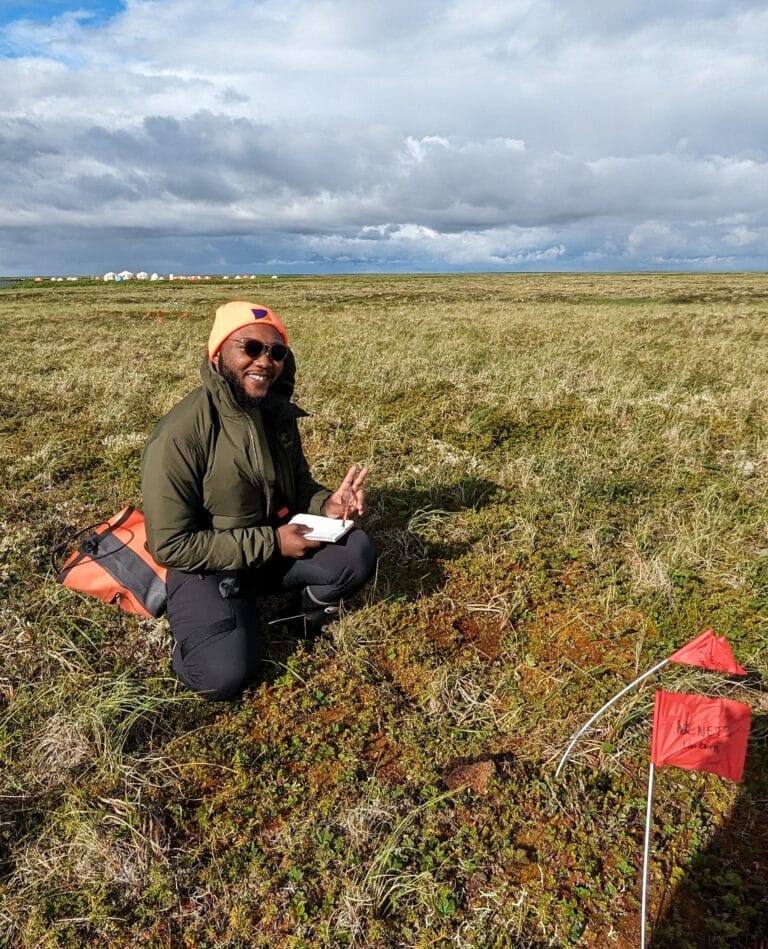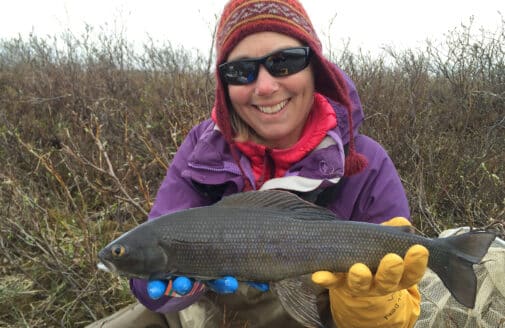photo by Heidi Golden
Ecosystems are made up of multiple species that have evolved with each other and their shared environment.
Understanding how biological systems interact over space and time is a Grand Challenge for Biology—made even more urgent and policy-relevant given recent and rapid changes in our climate. This is particularly important for the Arctic, which is warming at least three times faster than the global average.
Arctic species and ecosystems are uniquely suited to their extreme environment, and provide food and livelihoods for people. It is critical to know how Arctic species will respond, along with their ecosystems, to rapid change. Will ecosystems fall apart, muddle along in a reduced state, or can species adapt to keep pace with climate change?
The Evolving Meta-Ecosystems (EVOME) Institute brings together experts from across biological disciplines to generate new insights at every scale of biology, from genes to landscapes. The Institute has three overarching themes:
- Investigate multiple species’ responses to changes in river and streamside tundra environments. We will conduct landscape surveys and large-scale experiments to learn how genetic changes influence the flow of energy within and among ecosystems and create models to predict future change.
- Foster a new generation of biologists trained to think and work across disciplines, with special attention to increasing the inclusion and retention of researchers from backgrounds underrepresented in the field. We will create a cross-disciplinary and cross-institutional educational course, a research fund for students, and a Fellows program.
- Invite journalists into the research process to create innovative media and stories through blogs, social media, and radio stories that can deliver EVOME’s interdisciplinary understanding of Arctic change to public audiences, including rural and Alaska Native communities. Journalists will also work with the Institute’s scientists to help build their scientific outreach skills.
Research area


left: Dr. Heidi Golden and UCONN REU student Carolin Judge sampling Arctic aquatic ecosystems. / photo by Mark Urban
right: Dr. Nigel Golden investigating plant diversity in tundra ecosystems. / photo courtesy of Nigel Golden
EVOME’s unique approach will spark new discoveries, enrich research perspectives, and enable a deep understanding of the impacts of climate change—both for the science community and for the public.
This work is supported by the National Science Foundation’s Directorate for Biological Sciences.
This material is based upon work supported by the U.S. National Science Foundation under Award No. NSF 2320675. Any opinions, findings, conclusions or recommendations expressed in this material are those of the author(s) and do not necessarily reflect the views of the National Science Foundation.




